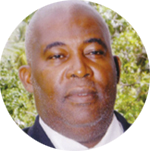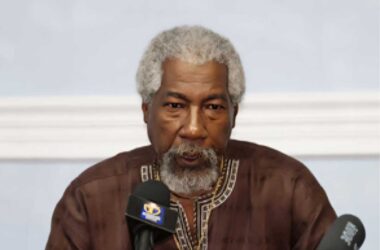
WELCOME students to the Open School for the third and final term. I also wish to welcome students to the continuation of the lesson in the Open School on Preventing Behaviour Problems: What Works. This is the final Part. The school is open to parents, guardians, teachers, students and members of the public. This is the fourteenth and last for the third in a series of lessons which is done in the Open school every two weeks. It is my hope that students will acquire knowledge and skills which will enable them to gain a better understanding of the behaviour problems and ways of preventing those behaviour problems.
At the end of the lesson, students will be able to (a) explain, in a simple sentence, two behaviour problems; (b) students will be able to list two ways of preventing behaviour problems in the local community.
Let me inform you that Open school closes with this issue for the summer holidays. School will reopen for the new school year 2022/2023 in September.
A large number of behaviour problems pervade our St. Lucian society today. The behaviour problems have become so problematic that the government now has to turn to the Regional Security Forces (RSS) to assist in reducing acts of aggression and violence in our society. Many of the problems which are being experienced, are initiated by young people at home, in school and in our wider community.
Homes and schools should reduce children’s exposure to negative conditions that cause stress. Attendance of adolescents and youth at events or conditions that are stressful create difficulty for both parents and children. These difficulties in turn can increase the chances the child will develop later problems.
I want you to understand carefully that a mother’s exposure to stress during pregnancy; no money or allowance for food at home, no money to purchase medication; not even to pay transportation to buy the medication at the government pharmacies even though it is free of charge, house rent is due and unpaid, could be related to behaviour problems in her child or children when they are born.
I learned, a very long time ago, that parents maternal smoking or alcohol use during pregnancy, could lead to a prolonged delivery. Many parents in St. Lucia, continue to smoke and drink alcohol during pregnancy. Those behaviours could have adverse effect on the young and growing child.
Exposure to violence in the family and community produces stress for children and adolescents. It is believed that repeated exposure to violence can lead to changes in brain functioning, and has been related to increased risk of aggression and use of drugs and alcohol, particularly in boys. Other family stressors such as divorce, unemployment and poverty is associated with problems in parenting and family relationships. These parenting problems in turn can contribute to a child’s behaviour problem.
It is important to note that studies with animals and drug use suggest that lack of control over the environmental stress might lead to higher levels of substance abuse. Educational research has shown that children are motivated to achieve control over their environment, and they will attempt to do so by regulating their body’s exposure to stress and stimulation. This calls for a tremendous amount of discipline, but it could be done.
Now here are some important things that schools can do:
Provide parent education classes. It does not have to be formal classes. During PTA meeting, a concerted effort must be made to educate parents on these matters.
Indeed, hosting PTA meetings is one thing, getting the parents to attend to inform them on important matters such as these, is another thing as they do not come to the PTA meetings. So it’s ‘turning top in mud’.
At those PTA meetings parents could be trained in warm, consistent child-rearing practices. They should also be advised on how those skills can help prevent the negative effects that can result if the child is exposed to stress early in life.
School should provide children with opportunities and pro-social skills that allow them some control over their environment, especially during particularly stressful periods in their lives. For example, include opportunities to master new skills like sports or the arts.
Some pro-social skills are; helping in the school garden or the School Feeding Programme; sharing, donating, co-operating, volunteering, consoling, comforting and protecting someone from any potential harm.
Schools should provide safe environments for children to play and study and minimize exposure to harmful substances and other biological risk factors.
Indeed, schools should know their environment. As parents and members of the community, we know that children go to school with weapons and other unwanted paraphernalia.
Schools should use their programmes and mass media messages to emphasize the positive things that young people are doing and to show that most young people are opposed to substance abuse and violent behaviour. Daher Broadcasting Service (DBS) has an excellent media blitz such as:
“STOP THE VIOLENCE!” I don’t hear it very much these days but it surely needs to continue.
Now two questions for you: (1) Name three ways in which parents and teachers can prevent children and students curb or prevent behaviour. (2) Name two conditions which could promote behaviour problems in the unborn child.
See you next term, come September.











